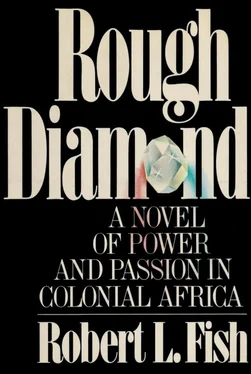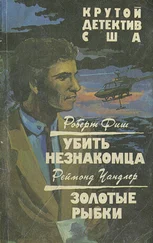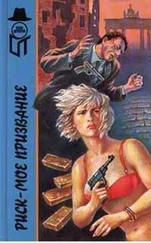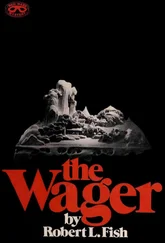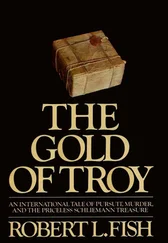“Ummm…”
“Besides which,” Barney said, as if it were an afterthought, “I wasn’t thinking of a railway from Kimberley to Johannesburg. I was thinking of a railway from Kimberley to Pretoria…”
Kruger leaned forward, frowning. “To Pretoria? Not to Johannesburg?”
Barney shrugged lightly. “Oh, I suppose a spur track from the main line to Johannesburg might be of use to you, Mr. President, since it would connect the two principal cities in your republic and save your burghers much time and expense in getting from one to the other. And, of course, it would also be a link between the capital of the Transvaal and the capital of the Cape Colony.”
Kruger stared a moment and then for the first time, laughed outright.
“Mr. Barnato,” he said, his small eyes twinkling, “you amuse me!” He considered Barney’s placid face as if judging the man’s sincerity. At last he seemed to come to a conclusion. “But you also interest me. A railway to Pretoria, not to Johannesburg…” He began to rock again, stroking his chin whiskers, speaking almost as if to himself, but including Barney in the conversation. “They are working on a railway from Delagoa Bay in Portuguese East Africa to Pretoria, but they are a long way from completing it; there are difficulties with the terrain—”
“A line from Kimberley to Pretoria could be completed in a year,” Barney said quietly. “The terrain is very favorable.”
Kruger continued as if Barney had not spoken. “And Delagoa Bay is not such a port as Cape Town.” He frowned down at the floor of the stoep . “A railway from Kimberley to Pretoria… It might be possible…”
“With a spur from the railway line to Johannesburg,” Barney said evenly.
Kruger smiled and leaned forward in his rocking chair, for the first time extending his large hand for Barney to shake.
“We shall get along, Mr. Barnato,” he said, and clasped his large hand around Barney’s smaller one, surprised but somehow also pleased by the strength of the smaller man’s response. He released Barney’s hand and came to his feet, tightening the shawl about his shoulders. “You will forgive me, but it is time for my rest. Do not get old, Mr. Barnato. It will prevent you from handling men like the Angolan Giant — or even men like me. But you handled me well. You have given me something to think about. Our Volksraad meets in a week. I shall bring up the matter of your — ah, ideas. Your suggestions. I think maybe some of them can be considered…”
Barney had come to his feet with Kruger. “Thank you very much for listening to me, Mr. President.”
Kruger paused on his way into the house. He stood there, a large, hulking man leaning forward a bit, his feet splayed out in his frayed carpet slippers, his rather worn shawl a bit out of place against the elegance of the stoep of the well-kept house, but an impressive figure for all of that. His small eyes were alert as he studied his visitor.
“It never hurts to listen, Mr. Barnato,” he said slowly, as if he were not the most stubborn of men, and with a brief nod of his head he turned and walked into the house, leaving a thoughtful Barney Barnato to climb into his trap and turn his horse’s head back in the direction of Johannesburg.
A few miles north of Warrenton, at the border checkpoint on the newly completed railway between Kimberley and the Transvaal, the train was stopped for the usual customs check by the Transvaal authorities. This was always an onerous delay for any shipper or traveler, for the taxes imposed on each load varied greatly and had to be calculated and paid at the moment, but at least this time the calculation had to be easier, as each of the three wagons in question contained exactly the same load, sixty drums of oil. And each of the freight cars was also accompanied by a separate guard, which did not surprise the border officials, since the stealing from the railway wagons was not unknown.
Still, the size of the shipment was unusual: a total of one hundred and eighty drums of oil, all consigned to the Consolidated Gold Fields of Africa Ltd. To the customs officials this seemed rather excessive, since most of the steam produced at the mines to run their donkey engines and their winches was produced by coal, and oil was a luxury used by those who could afford to keep lamps burning late, or small heaters to keep out the chill of the Witwatersrand winter. But this was November, approaching the hottest months of the year here below the equator, and the customs officials were suspicious by nature. Besides, they had been instructed quite recently by Pretoria to be overly cautious in what they permitted to pass their station, especially from the Cape, as guns had been discovered under loads of hay, and beneath piles of potatoes up to the roof of the cars carrying them, and gunrunning, or even the owning of guns by anyone other than Boer burghers was strictly prohibited. The officials’ suspicions were further aroused by the fact that all the guards were, or sounded like, Americans, and these were rarely used in such menial labor as loading and unloading heavy objects, yet there were no Kaffirs along to handle that phase of the transport.
So the customs authorities asked to have a few of the drums unloaded and opened to see if their cargo was indeed oil. The lead guard complained bitterly in his poor Afrikaans that not only were the drums heavy and difficult to lift without proper hoisting equipment, since each drum weighted in excess of three hundred pounds, but their baas would think they had drained a little oil from each drum, a ploy not unknown, since it would reward each guard with a sum of money greater than his pay for the journey. But the customs men were only amused by these excuses and became more adamant than ever, so, with a sigh at the unexpected vicissitudes of the job, the guards wrestled down a few drums from each railway wagon as specified by the customs men and set them heavily on the ground. The customs officials then proceeded to open the bottom bung on each of the selected drums and then stared as oil began to gush from each opening. The guards cried in anguish at this senseless waste of their boss’s oil, and hurriedly shut the taps. The drums were then finally wrestled back in place on the wagons, the total duty calculated and paid by the lead guard — who also demanded and received a proper receipt, as any other procedure would have been suspicious — and the car doors were closed and the train permitted on its way up the newly laid spur track toward Johannesburg.
In the warehouse that had been selected for the purpose since it was the closest to the center of Johannesburg and therefore the most accessible when the time came to gather there and arm themselves and the other citizens of the city for their revolution, the heads of the Reform Committee — less Captain Leander Starr Jameson, who was already in position on the border — considered the opened oil drums. Colonel Frank Rhodes, in charge of the city’s actions in the uprising, shook his head.
“So far we’ve gotten in roughly thirteen hundred rifles and maybe forty thousand rounds of ammunition,” he said mournfully. “That’s less than thirty-one rounds per gun. Our experience in the British Army is that a foot soldier on the average causes one casualty for every eight hundred and fifty rounds that he fires. And those are experienced troops with target training, not inexperienced diggers or draper’s clerks. On that basis we’ll be lucky to stop the greengrocer on the corner, let alone the Johannesburg Police, never mind any Boer commandos old Kruger may throw at us.”
“We still have time to bring in more,” Phillips said consolingly.
“Do we?” Colonel Rhodes looked at Phillips almost pityingly. “More than half of the arms we’ve shipped here from Kimberley have been confiscated at the border. Do you really think that Kruger is a complete idiot? Do you think he doesn’t hear of this? Do you think he figures that somebody has been planning a gigantic hunting expedition that was supposed to leave from the Transvaal? Believe me, anything coming in now will be searched from top to bottom, including oil drums, and a few drops of oil from a bung isn’t going to stop them from being opened. Plus the fact we’ll be lucky if he doesn’t have the police here in Jo’burg do a thorough search of the town itself, and come up with what we’ve got here!”
Читать дальше
